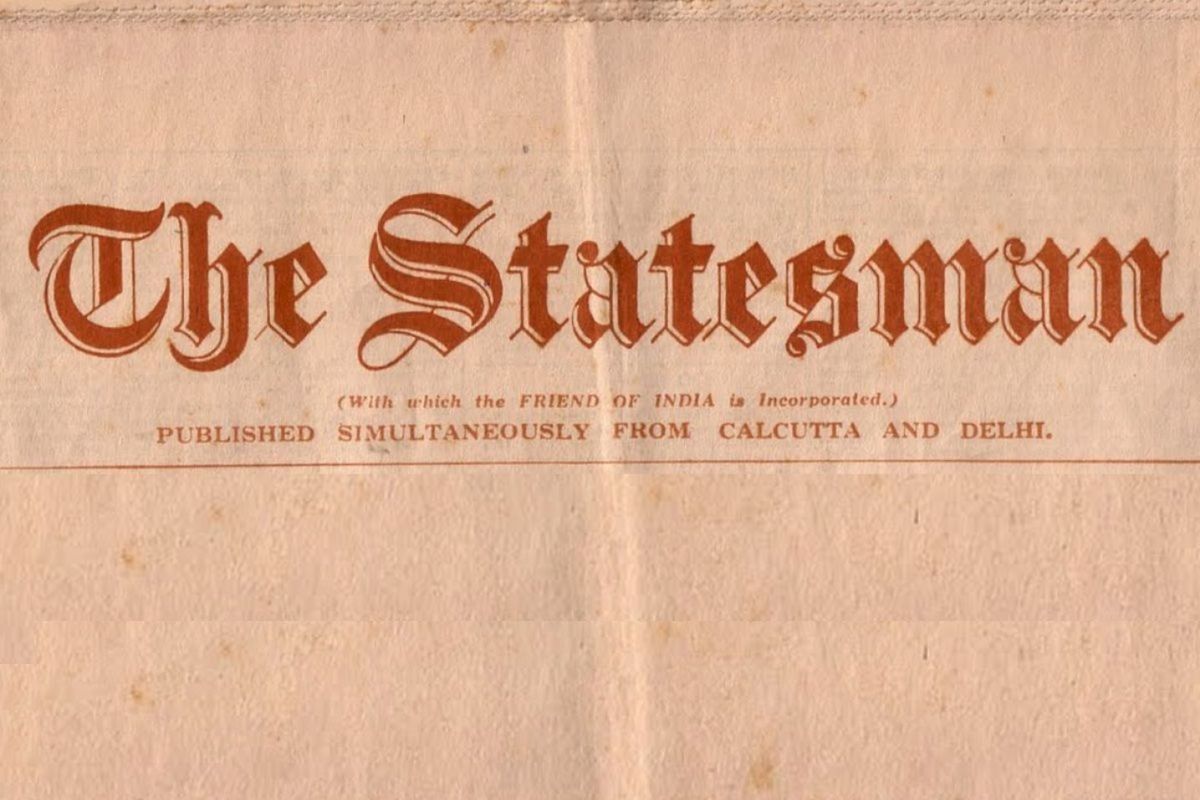Leading women personalities on what it takes to be a woman!
On International Women's Day, The Statesman talked to esteemed women personalities from various fields on what it takes to be a woman in our country and what empowers them.
On this day a century ago, these were some of the news items The Statesman readers got to read about India and the world.

OCCASIONAL NOTE
When the war came to an end, the holders of plots for the cultivation of vegetables in the United Kingdom made a strong appeal that a plan that had worked so well in time of war should be perpetuated, and that encouragement should be given to the cultivators of these plots by giving them security of tenure. The complaint is now being made that too much of the ground that was formerly available for public recreation is still being used as allotments. A statement has been published by the Metropolitan Public Gardens Association that of the 1,600 acres of ground that were formerly available for games in London 670 acres, or 42 per cent, are now being used as plots for growing vegetables. The demand for space for games, too, has become more insistent since the end of the war. Miners have finished their day’s work by two o’clock in the afternoon and most people have more leisure than they used to have. School children, too, require more space for games like cricket and football than the playgrounds afford. Where land is so limited as it is in England, it is exceedingly difficult to meet the requirements of all who wish to use it, and there are many who consider that it is the would be house-builder who at the present time has the strongest claim for consideration.
Advertisement
BOMBAY STRIKES
Advertisement
BOMBAY, JAN 23
Today marks the beginning of the fourth week of the mill strike and the situation remains unchanged. Quietness prevails in the mill area and the strikers have not been assembling in the streets owing to the hope entertained that the intervention of the Governor will bear fruit. The strikers of Mazagon Dockyard and Messrs. Alcock Ashdown and Co., are engaged in discussing the concessions announced by the agents, viz., one month’s wages as bonus to workmen with a year’s service and a proportionate amount to those with service less than one year, increase of food allowance from two to four annas in the case of men drawing Rs 1-8 per day and to six annas in the case of all drawing less, and the war bonus of ten per cent paid since October, 1918, to be consolidated as a permanent increase in wages.
INDIA S FIRST AIR MAIL
KARACHI, JAN 23
Promptly at 2 o’clock today two aeroplanes carrying the first postal mail from Karachi to Bombay started from Mugger Pir aerodrome. A mild south-westerly wind was blowing at the time. The planes, after maneuvering for height, appeared to enter the calm zone at about 10,000 feet. Great interest is taken in the event and there was a big crowd representing all races and classes to see the start. The flight according to the planned air route is 700 miles. Before the start the Hon. P.R. Cadell, His Majesty’s Commissioner in Sind, who was accompanied by his private secretary, wished the airmen bon voyage, also the passenger, Mr. S. Lupton, editor of the Daily Gazette, Karachi, who, on the invitation of the Governor of Bombay, is making the flight.
FOUND IN POSSESSION OF GOLD
The case in which Joseph Dinonte, aged 21, late tube mill fitter, Nundydroog, was charged with an offence under Sections 6 and 13, Mysore Mines Regulations, in that he was found in possession of 3 and three fourth tolas of sponge gold on the 2nd November last in an empty shed in the compound of the Epidemic Diseases Hospital at Robertsonpet, was concluded today, when Mr. Sidney, M. Pritchard, Justice of the Peace, delivered judgment. His worship, taking into consideration all the evidence before him, said he could not accept the defence theory that the gold was foisted on him. The Court found accused guilty of the charge and sentenced him to three months’ rigorous imprisonment.
THE INTERNATIONAL LABOUR OFFICE
An article in the Times supports the objections made at the recent International Labour Conference in Washington against the nominees, which the League of Nations is entitled to appoint on the executive of the International Labour Office being chosen exclusively from European countries, and points out that Belgium is included while India, China and Japan are left out despite their enormous populations, of which the majority are manual workers. Such nominees are supposed to represent the nations of the chief industrial importance, and it is difficult to see how the Council of the League of Nations, which when formed will finally decide the nominations, will be able to conclude that no Asiatic country fulfils this provision.
Advertisement